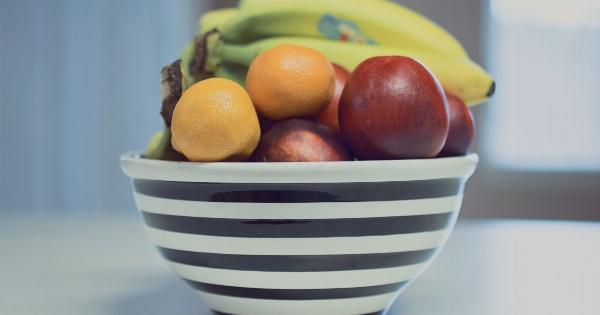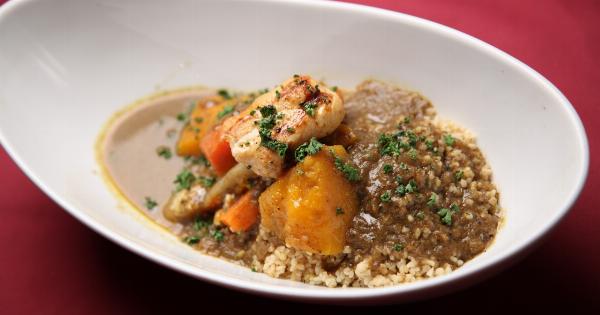Pregnancy is one of the most beautiful and exciting phases in a woman’s life. As soon as you find out you are pregnant, your focus automatically shifts to the little one growing inside you.
You want to make sure they are getting the best nutrition possible. Eating a healthy and balanced diet during pregnancy is crucial for the overall health and development of your baby.
Key Nutrients for a Pregnant Woman
During pregnancy, your body needs extra nutrients to support you and your growing baby. The nutrients that are important in a pregnancy diet vary slightly from those required in a regular healthy diet.
The key nutrients that you should incorporate into your pregnancy diet include:.
- Protein: Protein is essential for the growth and repair of tissues in our body, especially during pregnancy. You should aim to consume at least 70 grams of protein per day.
- Folic Acid: Folic acid is vital for the development of baby’s neural tube, which forms the baby’s brain and spinal cord. You should consume at least 600 mcg of folic acid per day.
- Calcium: Calcium is necessary for the development of your baby’s bones and teeth. You should consume around 1000-1300 mg of calcium per day depending on your age and the stage of your pregnancy.
- Iron: Iron helps in the production of hemoglobin, which carries oxygen to your baby. You should consume at least 27 mg of iron per day.
- Vitamin D: Vitamin D is essential for the development of your baby’s bones and teeth. You should aim to get at least 15 mcg of Vitamin D per day.
- Zinc: Zinc helps in the development of your baby’s organs, cells, and tissues. You should consume at least 11 mg of zinc per day.
What to Eat During Pregnancy
Now that you know the key nutrients that you should consume during pregnancy. Let’s discuss a few foods that you should be eating during pregnancy.
Fruits and Vegetables:
Fruits and vegetables are the best sources of essential vitamins, minerals, and fiber. They help maintain and regulate the digestive system and prevent constipation.
You should aim to have at least 2 cups of fruits and 2 and a half cups of vegetables every day. Eat fruits and vegetables of various colours to ensure you are getting a variety of nutrients.
Protein:
Protein is an essential nutrient for building tissues in the body. During pregnancy, you need to consume a lot of proteins. You can get protein from sources like meat, fish, poultry, eggs, legumes, soy, tofu, nuts, and seeds.
You should aim to consume a minimum of 70 grams of protein per day.
Dairy Products:
Dairy products are great for getting the required amount of calcium. You can get calcium from sources like milk, cheese, yogurt, and other dairy products. Pregnant women should consume at least three servings of dairy products daily.
Whole Grains:
Whole grains like brown rice, quinoa, oats, and wheat are great sources of fiber and complex carbohydrates. They help in the digestion process, and also provide energy to your body. You should aim to consume at least six servings of whole grains daily.
Healthy Fats:
Healthy fats like nuts, seeds, avocado, oily fish, and olive oil are essential for the proper development of your baby’s brain and eyes. Healthy fats also help keep your heart healthy.
You should aim to consume at least one serving of healthy fat per day.
Foods to Avoid During Pregnancy
You also need to be careful about the foods that you should avoid during pregnancy. Below are some foods that you should avoid during pregnancy:.
Raw or Uncooked Meat:
Raw or undercooked meat can contain harmful bacteria, which can cause infections and damage fetal growth. Avoid eating raw or undercooked meat like beef, lamb, and pork.
Seafood with High Mercury Content:
Seafood like shark, swordfish, king mackerel, and tilefish have high mercury content, which can damage the baby’s nervous system. Avoid eating these types of fish during pregnancy.
Raw Eggs:
Raw or undercooked eggs can have harmful bacteria like Salmonella, which can cause infections and illnesses. Avoid eating raw or undercooked eggs or foods that contain raw eggs during pregnancy.
Unpasteurized Dairy Products:
Unpasteurized dairy products can have harmful bacteria and can cause infections and illnesses. Make sure to consume only pasteurized dairy products during pregnancy.
Hydration during Pregnancy
Drinking plenty of fluids is crucial during pregnancy. Water is the best fluid for pregnant women. It helps maintain the amniotic fluid level, prevent constipation, and regulate the body temperature.
Drinking at least 8-10 glasses of water every day is essential during pregnancy. You can also consume other fluids like fresh juices, coconut water and herbal teas in moderation, but avoid energy drinks, fizzy drinks and caffeine during pregnancy.
Conclusion
During pregnancy, it is crucial to have a healthy and balanced diet. Eat a variety of fruits and vegetables, consume protein-rich foods, and whole grains to get essential nutrients required by you and your baby.
Avoid unhealthy foods and fluids and stay hydrated. The key is to eat a balanced diet and to make sure that the food you eat is nourishing and provides the nutrients that you and your baby need.





























